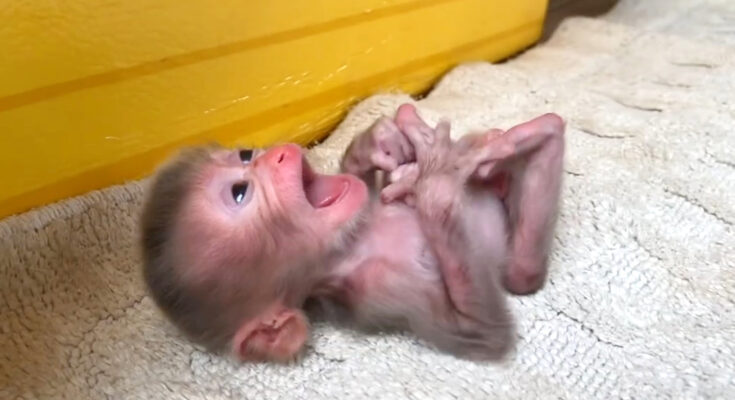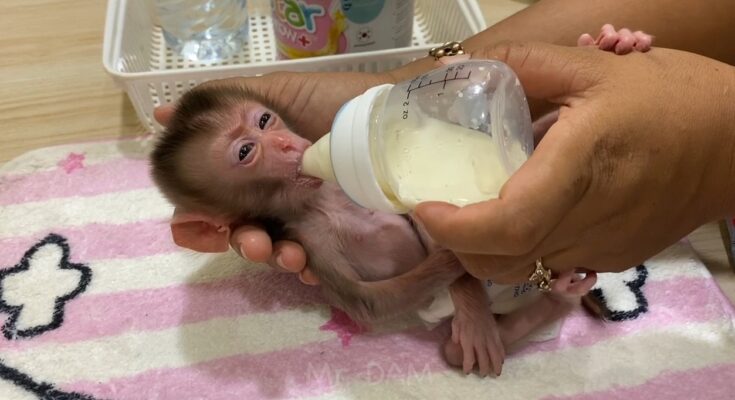Baby monkeys are undeniably adorable, and many people wonder if they can keep one as a pet. While the idea of having a tiny primate companion may seem appealing, there are several important factors to consider before making such a decision. This article explores the pros, cons, and legal aspects of owning a baby monkey as a pet.
Introduction
Baby monkeys are undeniably adorable, and many people wonder if they can keep one as a pet. While the idea of having a tiny primate companion may seem appealing, there are several important factors to consider before making such a decision. This article explores the pros, cons, and legal aspects of owning a baby monkey as a pet.
Pros of Having a Baby Monkey as a Pet
1. Intelligent and Entertaining
Monkeys are highly intelligent animals that can learn tricks, respond to training, and provide endless entertainment.
2. Strong Bond with Owners
Some baby monkeys form deep emotional attachments to their owners, much like a human-child relationship.
3. Unique and Exotic Companion
Having a pet monkey is an unusual experience that sets owners apart from conventional pet owners.
Cons of Having a Baby Monkey as a Pet
1. High Maintenance Needs
Monkeys require constant attention, a specialized diet, and regular vet visits, making them extremely high-maintenance pets.
2. Destructive Behavior
As they grow, monkeys can become aggressive and destructive, often breaking household items and even attacking owners.
3. Long Lifespan and Commitment
Many monkey species live for 20-40 years, making them a lifelong commitment that many people underestimate.
4. Social and Emotional Needs
Monkeys are highly social creatures that thrive in groups. Keeping one as a pet can lead to loneliness and emotional distress.
5. Health Risks and Zoonotic Diseases
Monkeys can carry diseases that are transmissible to humans, including herpes B and other infections, making them a health risk.
Legal Considerations
Owning a baby monkey is not legal in many places due to ethical and safety concerns. Here are some key points:
- United States: Laws vary by state. Some states completely ban pet monkeys, while others require special permits.
- United Kingdom: Owning a monkey as a pet is heavily regulated, and new laws are being proposed to restrict private ownership.
- Other Countries: Many nations have strict bans due to conservation efforts and animal welfare laws.
Before considering getting a pet monkey, always check local wildlife and pet laws to ensure compliance.
Ethical Concerns
Keeping a monkey as a pet raises ethical issues. Many monkeys in the pet trade are taken from the wild or bred in poor conditions. This contributes to animal suffering and illegal trafficking.
Conclusion
While baby monkeys may seem like fun, they require extensive care, long-term commitment, and legal approvals. If you truly love monkeys, consider supporting primate sanctuaries or adopting a rescued monkey rather than keeping one as a pet.
Can You Ra💕ise💕 a Baby Monkey Like a Puppy or Kitten? The Answer Will Surprise You! 🐵😲

Raising a pet is a responsibility that requires love, patience, and care. While dogs and cats are the most common household pets, some animal lovers wonder—can you raise a baby monkey just like a puppy or kitten? The idea sounds fascinating, but the reality might not be what you expect!
Understanding the Needs of a Baby Monkey
Unlike dogs and cats, baby monkeys have very different social, emotional, and physical needs. In the wild, monkeys rely on their mothers for months or even years before becoming independent. They require constant attention, warmth, and a proper diet to stay healthy.
Diet and Nutrition: More Complicated Than You Think
Dogs and cats have commercially available pet food designed to meet their dietary needs. However, feeding a baby monkey is a completely different challenge. They require a well-balanced diet consisting of fruits, vegetables, and special formula milk. If not fed properly, they can suffer from malnutrition or serious health problems.
Behavioral Differences: Can a Monkey Be Trained Like a Dog or Cat?
Puppies can be trained to follow commands, and kittens quickly learn how to use a litter box. But baby monkeys? They have wild instincts that make training extremely difficult. Unlike dogs, they do not have the same desire to please their owners. Instead, they are highly intelligent and independent, which can lead to unpredictable behavior.
Social and Emotional Needs: A Lifelong Commitment
Dogs and cats bond with their owners and adapt well to home life. Monkeys, on the other hand, need a structured social environment. In the wild, they live in groups and depend on social interactions. If kept alone, they may develop anxiety, aggression, or depression.
Legal and Ethical Considerations
In many places, owning a monkey as a pet is illegal due to ethical and safety concerns. Even where it is allowed, it requires special permits and proper facilities to ensure the well-being of the animal. Unlike dogs and cats, monkeys are not domesticated animals, which means they can become aggressive as they grow older.
The Verdict: Should You Raise a Baby Monkey?
While it might seem fun and exciting to raise a baby monkey like a puppy or kitten, the reality is far more complex. Monkeys require specialized care, socialization, and an environment that mimics their natural habitat. They are not easy pets and may not be the best choice for a household animal.
Final Thoughts
If you’re fascinated by monkeys, consider supporting conservation efforts or visiting wildlife sanctuaries where you can safely interact with them. Raising a baby monkey is a commitment beyond what most pet owners can handle. Instead, adopting a dog or cat remains the best way to experience the joys of companionship!
Should You Really Be F🐵eding a Baby Monk🐵y at Home? (The Truth May Sh🐵ck You!)

Baby monkeys are undeniably adorable — their tiny hands, playful nature, and big curious eyes can melt anyone’s heart. But should you really be feeding a baby monkey at home? The truth might surprise you, and it’s not as simple as it seems.
Baby Monkeys Are Not Like Puppies or Kittens
Many people assume that feeding a baby monkey is no different than caring for a baby kitten or puppy. In reality, baby monkeys have very specific dietary and care needs that are extremely difficult to meet in a home environment. Without proper nutrition, these adorable creatures can quickly develop severe health problems.
A baby monkey’s diet requires:
- Specialized formula (not regular baby milk or cow’s milk)
- A precise balance of fruits, vegetables, and proteins
- Constant access to clean water
- Supplements to mimic the nutrients they’d get in the wild
Even a small mistake in their feeding routine can lead to malnutrition, digestive problems, and stunted development.
Feeding Them the Wrong Food Can Be Dangerous
Many well-meaning people think they can share their food with a baby monkey — a banana here, some rice there. But human food, especially processed snacks, can be harmful to their delicate digestive systems.
Some foods that are toxic or harmful to baby monkeys include:
- Junk food and sugary treats
- Salty or processed snacks
- Dairy products (other than specialized formula)
- Spicy foods
Without expert guidance, you could accidentally poison or severely harm a baby monkey just by feeding them the wrong thing.
The Behavioral Risks You Don’t See Coming
Baby monkeys may look sweet and innocent, but they are wild animals by nature. Feeding them at home not only leads to health issues, but it also encourages unnatural behavior. As they grow, they can become:
- Aggressive when they don’t get what they want
- Territorial over food and their space
- Difficult to manage, even if they were sweet as babies
What starts as adorable feeding time could turn into biting, scratching, and destructive behavior — all stemming from improper care and feeding.
Legal and Ethical Issues
In many areas, owning or raising a monkey at home is illegal without special permits. Even if you found an orphaned baby monkey, feeding it at home might violate local wildlife laws.
Monkeys are also social animals that need interaction with their own kind to develop normally. Raising one in isolation — even with the best food — can cause severe emotional stress and developmental problems.
What Should You Do If You Find a Baby Monkey?
If you ever encounter an abandoned or injured baby monkey, resist the urge to take it home and feed it. Instead:
- Contact local wildlife rescue organizations.
- Avoid giving human food or milk.
- Keep the monkey safe until experts arrive.
Feeding it the wrong food — even with the best intentions — could do more harm than good.
Final Thoughts
Feeding a baby monkey at home might sound like a heartwarming experience, but the reality is far more complicated. Without proper care, diet, and socialization, even the cutest baby monkey can suffer from malnutrition, behavioral problems, and serious health risks.
The truth is simple: Baby monkeys belong in the wild or with expert caretakers — not in your kitchen.



